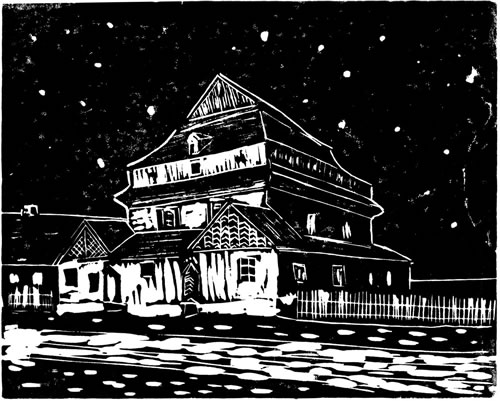Lost Treasures: The Wooden Synagogues of Eastern Europe The Artwork of Bill Farran
Suchowola, Poland - Original Linocut
Suchowola, Poland - Original Linocut
Yiddish name: Suchavola
Suchowola was a small shtetl located between Bialystok and Grodno. Before World War II the population of Suchowola consisted of 1,000 Christians and 2,000 Jews. The Jews were mostly engaged in commerce and trade. Many were self-employed shoemakers, carpenters, tailors, and saddlers. The Jewish traders supplied grain, fruit and vegetables to Bialystok and Grodno by railway or by horse wagons.
The wooden synagogue of Suchowola dates to the second half of the 18th century. The square men’s synagogue was built lower than the entrance room, giving greater height to the synagogue without it appearing higher than the church steeple, which was forbidden. In the shtetl’s Yizkor book, “The Destruction of Suchowola,” Symcha Lazar writes: “The older generation frequented the synagogues and the houses of study where discussions and everyday quarrels and reconciliations took place; the Jews were attached to their shtetl and were concerned with the well-being of the community. The young people of Suchowola would meet in the library. In short – our Suchowola was a dear little shtetl.”
The synagogue of Suchowola and the Jewish presence were totally destroyed by the Germans during World War II.
